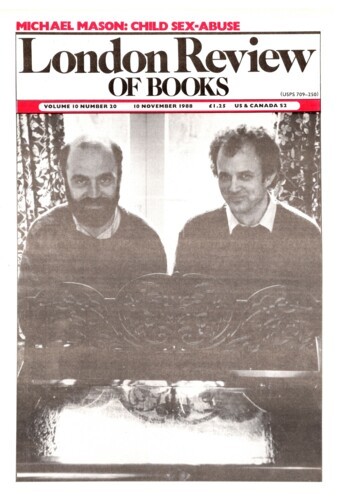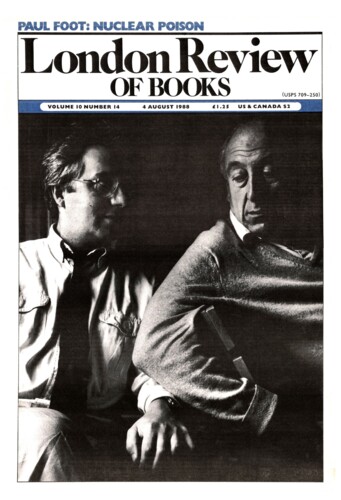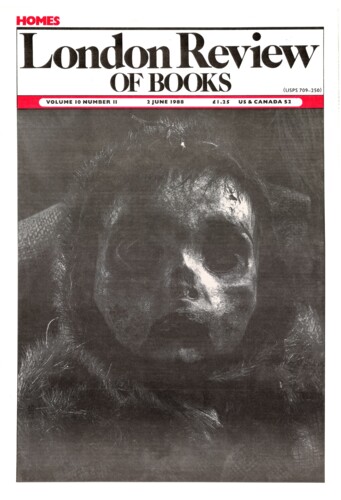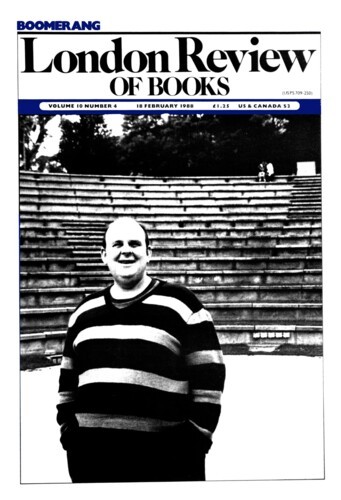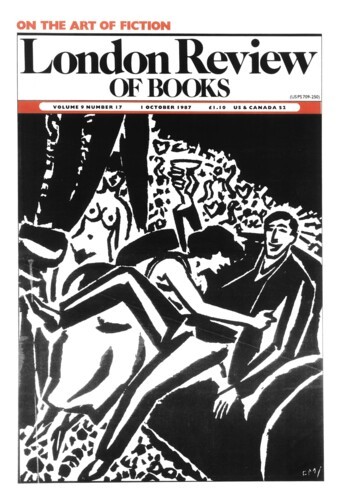Ventures
Susannah Clapp, 10 November 1988
‘In so short a time you have achieved the kind of fame people work towards for a lifetime,’ Diana Lamplugh wrote to her eldest daughter in August 1986. This daughter had achieved fame by disappearing: by being, at the age of 25, presumed dead. In July, Susannah Lamplugh had left the estate agent’s office where she worked, apparently to meet a client, and had never returned. She seemed to have been abducted; she was thought by most people to have been murdered. Mrs Lamplugh’s letter, which described what had happened since Susannah disappeared, was, it seems, written to steady her nerves, and written without much hope that her daughter would ever read it. But the letter was not short of respondents. Mrs Lamplugh gave it to her family, and to the Evening Standard, who printed parts of it. The Telegraph, Mirror and Star also published extracts. BBC Television News showed the writer typing her letter at her desk. Some months later, Diana Lamplugh was able to provide another chilling announcement: ‘We are probably (bar the Royals) one of the most well-known families in Britain.’
